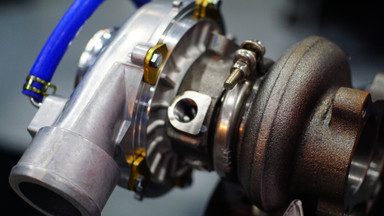30th May 2023
Common Turbo Failures to Avoid
Turbochargers are a vital component of many modern engines, especially in high-performance vehicles or heavy duty applications. They provide a significant boost in power by compressing air and increasing its density before it enters the engine. However, like all mechanical parts, turbochargers are prone to wear and tear, and can fail over time. Here, we will discuss some of the most common turbocharger failures.
- Oil Contamination: Turbochargers rely on a steady supply of clean oil to operate efficiently. Oil contamination is one of the most common causes of turbocharger failure. Over time, oil can become contaminated with dirt, debris, and other contaminants, which can cause the turbocharger to become clogged and fail. To prevent oil contamination, it is important to change the engine oil regularly and use high-quality oil.
- Bearing Failure: The turbocharger's bearings are subject to constant wear and tear due to the high speeds and temperatures they operate at. Without proper lubrication from engine oil, the bearings can become worn and damaged, which can cause the turbocharger to fail. Common signs of bearing failure include excessive noise, vibration, and decreased performance. Engine oil maintenance is imperative in preventing bearing failures.
- Shaft Damage: The turbocharger's shaft is another critical component that is subject to wear and tear. Over time, the shaft can become damaged due to excessive heat or wear, which can cause the turbocharger to fail. Common signs of shaft damage include excessive noise, vibration, and decreased performance. Lack of lubrication is usually the cause.
- Boost Pressure Issues: Turbochargers require unrestricted air flow to operate efficiently. Clogged air intake filters, leaking connections, or poor PCV system maintenance can lead to boost pressure issues and lack of performance. Engine air filter maintenance and routine engine inspections are necessary to protect the life of a turbocharger.
- Heat Damage: Turbochargers operate at high temperatures and are dependent on engine oil and/or coolant to remain at operating temperatures. Excessive heat as a result of poor maintenance can lead to heat damage and cause the turbocharger's components to warp, melt, or malfunction. To prevent heat damage, it is important to ensure that the engine's cooling system is functioning properly and that the turbocharger is properly lubricated.
In conclusion, turbochargers are complex components that are subject to wear and tear over time. While there are many potential causes of turbocharger failure, most issues can be prevented through regular maintenance and proper care. If you notice any signs of turbocharger issues, such as excessive noise or decreased performance, it is important to have your vehicle's engine systems inspected by a qualified mechanic to diagnose and repair the issue before it leads to further damage. Engine systems to inspect include cooling, oiling, crankcase ventilation, air intake, intercooler, and exhaust systems.
Feel free to contact us with any turbocharger questions!


